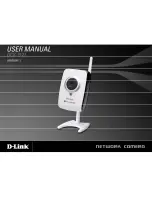
4 / 14
P/N 466-2676-
ML • REV C • ISS 02APR21
EN: Installation Sheet
Installation guidelines
Do not obstruct the detector field of view. Do not mount in
close proximity (see Figure 5). When using multiple detectors
ensure they are installed with 12 m distance between detectors
when facing or 2 m between detectors when used in parallel.
Keep beam away from vents, trees and shrubs and heat
sources (see Figure 1). For applications where the T-bracket is
used ensure the angle of the detector is pointing 2° away from
the building (Figure 4).
Detector placement and beam pattern
See Figures 2 to 7.
The detector uses microwave and infrared sensing to
determine motion detection. The optimum position of the
detector should be chosen to detect an intruder crossing the
beam pattern (Figure 2), and to avoid traffic from roads and
paths (Figure 3).
Mounting the unit
Secure the detector to a wall or solid fixture.
During installation, protect the electronics against water as
trapped moisture can affect or damage the unit. Unit supplied
has two mounting options (see below). Optional accessory
6930AMP-SB offers a third mounting option (see Figure 18)
and has ±45° pan and +15°, −45° tilt.
Basic installation, beam outward from surface
See Figures 2, 6, 10, 11, 12.
1. Feed the cable through rear or side knock-outs and then
fix to the wall (Figure 10, items B and C).
Optional T-bracket installation, beam across surface
See Figures 3, 7, 13, 14, 15.
2. Feed the cable through rear or side knock-outs (Figure 13,
item B) and out through cable access point (item C). Fix to
the wall and then secure the blanking plate onto the
unused side of the T-bracket (Figures 13, 14, 15).
Front assembly
See Figures 8, 9, 17.
3. Feed cable through grommet. Clip middle section shown
into lower part of back section (Figure 9) push back until
flat to wall. Cut and wire the cable into the terminal blocks
(Figures 16, 17).
4. Push the bottom of the front cover into clip on the middle
section and rotate back flat to the wall (Figure 9). Secure
by tightening the screw in access hole. Finally push fit
screw cover.
5. To access the unit once installed first lever off the screw
cover (see Figure 8). Unscrew the screw in the access
hole. Next reverse steps shown in Figure 9 or to remove
from the wall use provided clip to lever off the wall
mounting (see Figure 8).
Settings
See Figure 17.
Walk Test
Set the LED Indication to Enabled, default (Figure 17). On
power up the LED will flash red and green alternately for
2 minutes. The detector will then indicate an alarm condition
with a red LED.
LED condition
Indication
To reset
Red and green
flashing alternately
Power up cycle with
LED Indication set
to Enable
Automatically 2 minutes
after start-up
Red flashing
Alarm Detection
Automatically flash for 1 s
with 5 s between detection
Green on
Anti-Masking
detection
Automatically after masking
has been removed
Specifications
Power input
12 V
±3 V at max. 40 mA
Note:
During installation the DC
supply fault current shall be limited
to a maximum of 1 A
Detection selectable range
3, 6, 9, 12 m
Normally Closed Alarm
50 mA 24 VDC, Alarm time 10 s
Normally Closed Masking
50 mA 24 VDC, Alarm time 60 s
Normally Closed Tamper
With 20
Ω
impedance 50 mA
Mounting height
2.0 to 2.5 m
Microwave frequency
10.587 GHz
Maximum beam pattern area
12 x 2.8 m
Walk Test
Using LED Indication
Cable (<200 m)
8 core 7/0.2 mm
Operating temperature
−20 to +55°C
Temperature compensation
Digital
Dimensions (H x W x D):
Detector
117 x 44 x 41 mm
Boxed
125 x 63 x 53 mm
T-Bracket
120 x 68 x 50 mm
Weight
97 g
Packed weight
134 g
Regulatory information
Manufacturer
PLACED ON THE MARKET BY:
Carrier Fire & Security Americas Corporation Inc.
13995 Pasteur Blvd
Palm Beach Gardens, FL 33418, USA
AUTHORIZED EU REPRESENTATIVE:
Carrier Fire & Security B.V.
Kelvinstraat 7, 6003 DH Weert, Netherlands
































